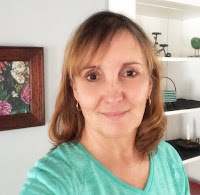by Deborah Lyn Stanley
When we read well, we write well. I list a few good Creating Writing books below.
Standout subjects include; plot and story structure, developing creative ideas, the flow of narrative, dialogue, and character development.
1. Ready, Set, Write: a Guide to Creative Writing by Melissa Donovan
2. Writing the Wave by Elizabeth Ayres
3. Telling True Stories: Nonfiction Writer’s Guide–Multiple Contributors, edited by Mark Kramer, Wendy Call
4. Plot & Structure by James Scott Bell
“Plot & Structure, Techniques and exercises for crafting a plot that grips readers from start to finish,” is 234 power packed pages in 14 chapters and 2 appendices.
The introduction lays out a fine tuned strategy for learning to write fiction.
What it takes to Learn Plot: Become your own plotting coach. Get Motivated:
1. Write a statement of purpose, one that gets you excited, and print it. Put it where you can see it every day. Come up with your own visual motivation. Inspirational words taped to your computer, or maybe a photo.
2. Try Stuff—try out what you learn, see if you get it, try some more. Take time to digest and apply what you learn about plot & structure to your own writing.
3. Stay loose—A tense brain freezes creativity. The guidelines in this book give you material to work with techniques that can help you.
4. “First get it written, then get it right.”
5. Set a quota—Writing is how we learn to write. Write daily – by a certain number of words or for a period of time.
6. Don’t give up—the difference between a successful writer and an unsuccessful one is persistence. Keep writing.
The author: James Scott Bell developed the LOCK system, a simple set of foundational principles for the writers and his success:
L = Lead Character
O = Objective (A want, A desire, driving force - Will the lead realize her objective?)
C = Confrontation (obstacles in the way)
K = Knockout
The author’s intent is to share his writing gems to strengthen all writers for a lasting career of productivity and publication.
Deborah Lyn Stanley is an author of Creative Non-Fiction. She writes articles, essays and stories. She is passionate about caring for the mentally impaired through creative arts.
Visit her My Writer’s Life website at: https://deborahlynwriter.com/
Visit her caregiver’s website: https://deborahlyncaregiver.com/
Mom & Me: A Story of Dementia and the Power of God’s Love
https://books2read.com/b/valuestories
Share on LinkedIn
https://www.linkedin.com/
And more via the icon bar below:












